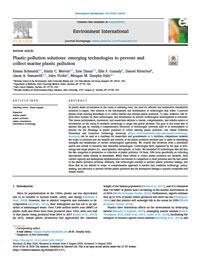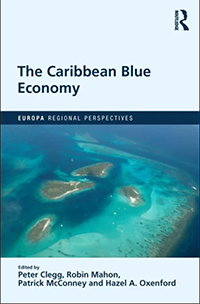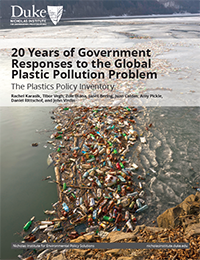Publications
Blue Gold
This article in Samudra Report discusses a study that illustrates the deep influences guiding the gilded ocean economy: just 100 companies generated 60 percent of revenues from the largest ocean-based industries in 2018.
How Does the World Bank Shape Global Environmental Governance Agendas for Coasts? 50 Years of Small-Scale Fisheries Aid Reveals Paradigm Shifts Over Time
The contribution of marine small-scale fisheries to global food security and coastal livelihoods, coupled with the significant challenges they face, has attracted increasing attention and aid from environmental organizations, philanthropies, and multilateral agencies over recent decades. Our study attends to the understudied role of the World Bank, the largest individual funder shaping present and future sustainability of coastal marine regions, as a key actor shaping global environmental governance paradigms.
Recognize Fish as Food in Policy Discourse and Development Funding
The international development community is off-track from meeting targets for alleviating global malnutrition. Meanwhile, there is growing consensus across scientific disciplines that fish plays a crucial role in food and nutrition security. However, this ‘fish as food’ perspective has yet to translate into policy and development funding priorities.
The Ocean 100: Transnational Corporations in the Ocean Economy
The ocean economy is growing, as commercial use of the ocean accelerates, while progress toward achieving international goals for ocean conservation and sustainability is lagging. In this context, the private sector is increasingly recognized as having the capacity to hamper efforts to achieve aspirations of sustainable ocean-based development or alternatively to bend current trajectories of ocean use by taking on the mantle of corporate biosphere stewardship. Here, we identify levels of industry concentration to assess where this capacity rests.
Plastic Pollution Solutions: Emerging Technologies to Prevent and Collect Marine Plastic Pollution
As plastic waste accumulates in the ocean at alarming rates, the need for efficient and sustainable remediation solutions is urgent. One solution is the development and mobilization of technologies that either 1) prevent plastics from entering waterways or 2) collect marine and riverine plastic pollution. To date, however, few reports have focused on these technologies, and information on various technological developments is scattered.
The Blue Economy as a Global Initiative
The Blue Economy concept has been promoted as a response to a vision of rapidly increasing human activity in the ocean, labelled an “economic frontier” for an expanding population searching for new sources of growth, equipped with emerging technologies that make the global ocean and its resources more accessible. To some extent, the concept has evolved from the earlier idea of an “ocean economy,” which aimed to link a diverse set of economic activities and industries under one label, because they all in some way shared the ocean as a physical context. For this reason, the concept of the ocean economy first needs some description, and to be distinguished from the concept of a Blue Economy.
Assessing the Potential for Transferability of Access Rights to Enhance Sustainability in Large Pacific Tropical Fisheries
This study was conducted in order to identify options for the transferability of fishing rights in the context of Pacific Island commercial longline and purse seine tuna fisheries. The motivation for conducting this study was to provide information that can assist policy makers and fisheries managers in the region to consider if this policy instrument (enhanced transferability of fishing rights) could support achievement of the goals agreed in the Regional Roadmap for Sustainable Pacific Fisheries.
Initial Measures of the Economic Activity Linked to Bangladesh’s Ocean Space, and Implications for the Country’s Blue Economy Policy Objectives
The Government of Bangladesh resolved its maritime boundaries in 2014, resulting in jurisdiction over ocean space equivalent to 80 percent of the country’s terrestrial area. To encourage the development of this area and the resources it contains, the Government embraced the concept of a “blue economy” in its most recent development plan, as a broad label for all ocean-linked economic activities that are environmentally and socially sustainable.
20 Years of Government Responses to the Global Plastic Pollution Problem
Plastic pollution in the ocean is a global problem that requires cooperation from a wide range of groups (e.g., governments, producers, consumers, researchers, civil society). This study aims to synthesize the policy response of governments to the global plastic pollution problem, as a basis for more rigorous monitoring of progress (as called for in Resolution 4/6 of the 2019 United Nations Environment Assembly (UNEA) meeting) and to inform future public policies.
Changing the Narrative on Fisheries Subsidies Reform: Enabling Transitions to Achieve SDG 14.6 and Beyond
The World Trade Organization is in the final stages of negotiating an agreement to prohibit harmful fisheries subsidies, thereby achieving UN Sustainable Development Goal 14.6. An effective agreement should be viewed as an opportunity for nations to proactively transition towards sustainable and equitable fisheries and pave the path for other SDGs.










